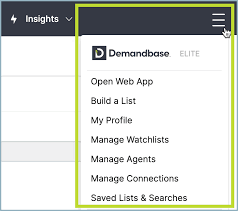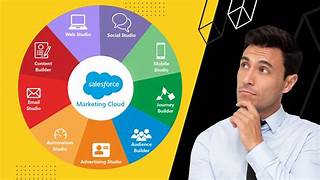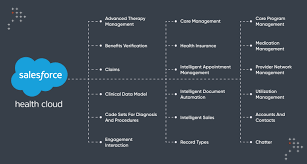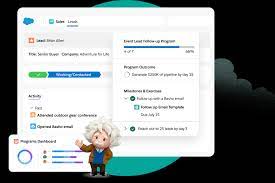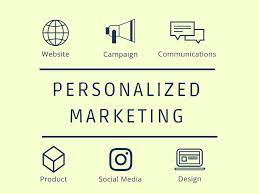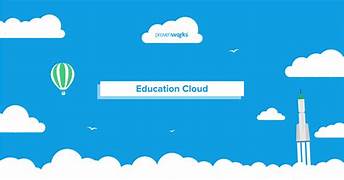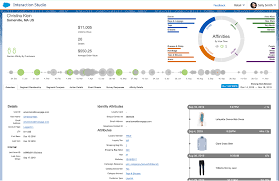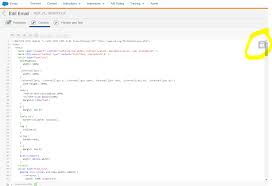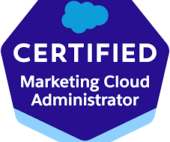Elevate Customer Experiences in Travel, Tourism & Hospitality Outstanding customer service is crucial for a positive travel experience. Customers expect personalized recognition and VIP treatment, necessitating enhanced personalization in communications and experiences across marketing, sales, and customer service. Salesforce Hotel Sales Enablement Salesforce provides a dynamic CRM platform tailored to the travel industry, featuring sales and marketing automation, data-driven analytics, and extensive customization options. It improves operational efficiency, customer engagement, and fosters innovation, offering travel agencies a competitive edge. Destination Success: Salesforce Hotel Sales Enablement for Travel Agents Travel agents often face challenges like dispersed customer data, real-time information gaps, and fragmented communication channels. Salesforce CRM offers a solution with an all-in-one platform for customer management, marketing automation, and data analysis. Leading travel companies like Hotel Tonight, Cleartrip, Caesars Entertainment, Anantara Vacation Club, and Intrepid Group use Salesforce products to enhance various aspects of their business. Why Travel & Hospitality Professionals Need Salesforce CRM Sales Cloud centralizes data storage, tracks customer requirements and preferences, manages bookings, provides real-time client information, enables personalized marketing, and facilitates data analysis for business performance. It also ensures secure collaboration and information access, boosting productivity. Explore key challenges below and how Salesforce Sales Cloud helps travel and hospitality agents overcome them: Key Challenges Salesforce Solutions Guest Experience Personalization Stores detailed customer profiles for tailored services and communication. Customer Data Management Consolidates customer information into a centralized database. Operational Automation Streamlines booking processes, guest communications, and other tasks. Enhanced Guest Communication Provides integrated communication tools for timely, personalized interactions. Revenue Optimization Offers insights into booking trends, guest spending habits, and market dynamics for dynamic pricing. Multiple Systems Integration Synchronizes data across various booking channels and integrates with financial, accounting, and other software. Adapting to Market Changes Provides flexible, scalable solutions for quick adaptation to market conditions and technological advancements. How Service Cloud Can Streamline Customer Support Salesforce Service Cloud enhances customer support by providing automated request management and deeper understanding of customer interactions. For instance, Anantara Vacation Club improved response times and customer satisfaction by transitioning to Service Cloud, achieving significant growth and high satisfaction scores. How Salesforce Can Facilitate Partnership Management Salesforce’s Partner Relationship Management (PRM) system and partner portals powered by Experience Cloud enhance collaboration with partners and affiliates. For example, Pernod Ricard used Experience Cloud to improve interactions with distributors and create customer communities. How Experience Cloud Helps Create Smooth Booking Management Salesforce Experience Cloud allows travel and hospitality businesses to create custom web portals for managing reservations, checking real-time availability, and processing booking modifications. How Marketing Cloud Helps Deliver Marketing Excellence Salesforce Marketing Cloud and Marketing Cloud Account Engagement provide sophisticated marketing automation tools for executing targeted campaigns and personalized guest engagement, as demonstrated by Intrepid Travel’s improved customer engagement and personalized journeys. How CRM Analytics Provides Strategic Insights CRM Analytics offers advanced analytics capabilities for data-driven decision-making, identifying trends, forecasting demand, and optimizing pricing strategies. This helps improve investment returns and predict future trends. How Salesforce-Powered Web Portals Can Enhance Travel & Hospitality Operations Salesforce Experience Cloud enables the creation of connected digital experiences for travel and hospitality businesses. Custom web portals built on Salesforce provide personalized digital experiences for customers, streamline booking processes for travel agents and partners, and improve internal collaboration for hospitality staff. Solutions Built on Salesforce Experience Cloud For Whom What Can Be Built Solution Benefits Customers Personalized Travel Portals, Self-Service Support Centers Easier travel planning, management, and access to support and travel advisories. Travel Agents and Partners Agent and Partner Portals Streamlined booking processes and better visibility into revenue and reservations. Employees Internal Collaboration Platforms, Training Platform Improved task management and access to real-time business insights. Examples of Custom Solutions Expert Salesforce Consulting with Tectonic Tectonic helps travel and hospitality businesses maximize Salesforce’s potential by creating customized self-service portals, booking portals, and integrated web platforms. With over 650 successful projects, Tectonic ensures proper configuration, data migration, ongoing support, and training for Salesforce products. Sales Enablement Strategy Sales enablement is crucial for evolving sales teams to sell with the latest technologies. Equip your sales teams with the right blend of assets and information using an elegant platform to help them increase sales and convert leads faster. Sell Faster with Sales Programs Sales Programs built into CRM guide sellers to success with AI-powered coaching and relevant resources, improving productivity and connecting programs to sales results. Best practice templates and intelligent, automated program delivery make it easy. Challenges Reps Face Reps often struggle with identifying stakeholders, strategy, and deal details. Sales enablement provides the necessary education and guidance to advance prospects through the sales pipeline effectively. Benefits of Sales Enablement Investing in a strong sales enablement process lifts the entire sales team and the company, connecting sellers to key players, ensuring consistent messaging, and increasing productivity. Content updated August 2023. Like1 Related Posts Salesforce OEM AppExchange Expanding its reach beyond CRM, Salesforce.com has launched a new service called AppExchange OEM Edition, aimed at non-CRM service providers. Read more The Salesforce Story In Marc Benioff’s own words How did salesforce.com grow from a start up in a rented apartment into the world’s Read more Salesforce Jigsaw Salesforce.com, a prominent figure in cloud computing, has finalized a deal to acquire Jigsaw, a wiki-style business contact database, for Read more Health Cloud Brings Healthcare Transformation Following swiftly after last week’s successful launch of Financial Services Cloud, Salesforce has announced the second installment in its series Read more

